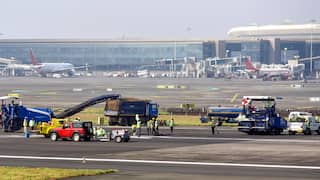300,000 Afghans Crossed Into Iran Since Taliban's Return To Power, Says Aid Group
NRC said on Wednesday that 4,000-5,000 Afghan refugees have been crossing into Iran daily since the Taliban took over Kabul.

New Delhi: Norwegian Refugee Council (NRC) said on Wednesday that 4,000 to 5,000 Afghan refugees have been crossing into Iran daily since the Taliban took over Kabul in August 2021. It also suggested that thousands of more refugees are expected in the upcoming winters, reported Reuters.
The aid group estimated that 300,000 Afghans have already taken refuge in Iran and appealed for international support for the country, “which is grappling with a deep economic crisis of its own.”
“Iran cannot be expected to host so many Afghans with so little support from the international community,” NRC Secretary-General Jan Egeland stated, as quoted by Reuters.
ALSO READ | PM Narendra Modi Speaks To Security Heads Of Seven Nations After Delhi Dialogue On Afghanistan
He also appealed for increased international aid for Afghanistan and its neighbouring countries saying, “There must be an immediate scale-up of aid both inside Afghanistan and in neighbouring countries like Iran, before the deadly winter cold.”
The Taliban’s takeover of Kabul led to an abrupt end to international aid and freezing of Afghan central bank assets initiating an economic collapse. This left the Afghans vulnerable and raised fears of a refugee crisis like that of Syria in 2015 which shook Europe.
Egeland said that Iran and Pakistan together host around 90 per cent of five million Afghans displaced outside the crisis-stricken country, Reuters reported.
“We commend Iran for welcoming and hosting millions of displaced Afghans for the past four decades. But now the international community must step up to support Afghanistan’s neighbours and share the responsibility to help them to continue welcoming refugees,” Egeland stated on his visit to Iran.
As per the NRC website, approximately 136 million US dollars are needed to support Afghans in Iran. According to UN agencies, 22.8 million people out of 39 million population are facing acute food insecurity compared to 14 million two months ago, reported Reuters.







































